Iranians Remain Top Home Buyers In Turkey
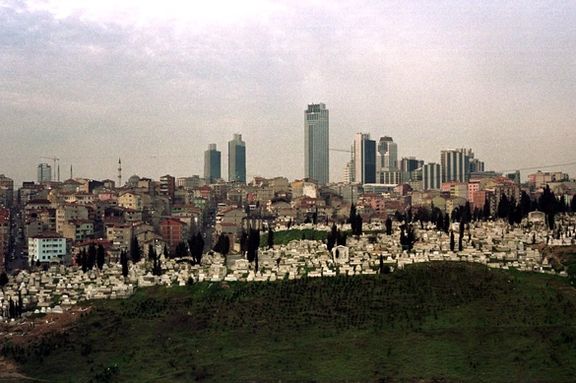
A new report by the Turkish Statistical Institute shows that Iranians are still at the top of the list of foreign residential property buyers in Turkey in March.

A new report by the Turkish Statistical Institute shows that Iranians are still at the top of the list of foreign residential property buyers in Turkey in March.
Iranians bought 2,256 residential units in the first quarter of this year, while Turkey has recently increased the minimum monetary value needed by a foreigner to apply for citizenship investment program from $250 thousand to $400 thousand.
House sales to foreigners rose 31 percent in March compared to the same month last year to 5,567. The purchases by foreigners were over four percent of all home sales in March with Istanbul on top of the list followed by the Mediterranean resort city of Antalya and the capital Ankara.
Total Turkish annual home sales also rose 20.6 percent in March to 134,170 houses amid declining supply and soaring prices, but industry representatives say the data show that households continue to view real estate as an attractive investment tool.
A senior member of Iran’s parliament said in October 2021 that Iranians bought $7 billion of real estate in Turkey in about three years from 2018 to 2020, with estimates of 3,000 residential units every year.
By buying property in Turkey, Iranians try to protect their capital as the country’s currency keeps falling and hope to gain Turkish citizenship and be able to do business without being restricted by US sanctions, which make it hard for Iranians to even open bank accounts in other countries.
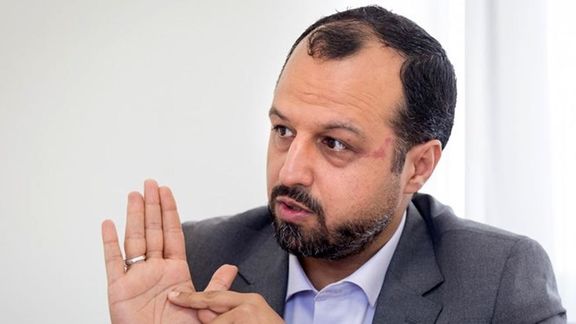
An alleged American delay in issuing a visa has led Ehsan Khandouzi, economy minister, to cancel his attendance in Washington at the World Bank and International Monetary Fund spring meetings.
According to a statement from the Ministry of Economic Affairs and Finance Saturday, the United States has violated its commitments over hosting international events and was obstructing, not the first time, the attendance of Iranian delegations at international events taking place in the US. Washington has not responded to the charges.
Ehsan Khandouzi, who has been in office since last August and has called for tighter monetary control, had planned to lead the Iranian delegation to the World Bank-IMF spring meetings due April 18-April 24. The meetings are expected to focus on the detrimental fall-out from the Ukraine war, particularly with poorer countries of the global ‘south’ facing rapidly rising commodity prices including foodstuffs.
In February, the Iranian national freestyle wrestling team had to call off a trip to Arlington, Texas, for a friendly match after the US government refused to issue visas for six members of the party, including Alireza Dabir, the chairman of Iran's Wrestling Federation, two wrestlers, a coach, the team manager, and a referee.
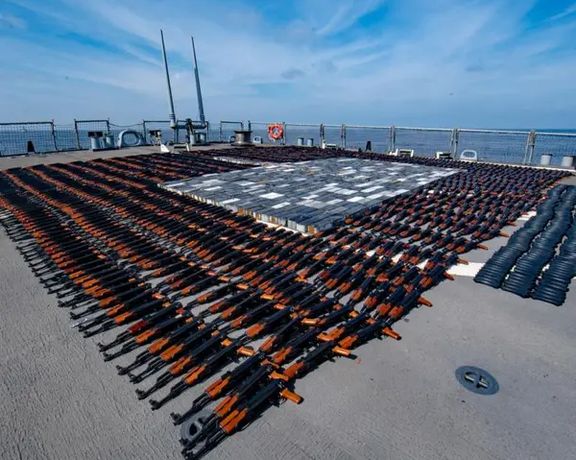
Iran-backed Houthi rebels in Yemen have criticized a new US-led multinational taskforce that will patrol the Red Sea following a series of attacks attributed to the group.
The Houthis’ chief negotiator and spokesman, Mohammed Abdul-Salam, said late Friday that formation of such a taskforce amid a cease-fire in the country’s civil war contradicts Washington’s claim of supporting the UN-brokered truce.
He said on his Telegram social media account that the US taskforce “enshrines the aggression and blockade on Yemen”, referring to the Saudi-led coalition’s blockade of Houthi-held areas. The rebels seized Yemen’s capital, Sanaa, in September 2014, about a year before the coalition entered the war on the side of Yemen’s legal government.
Iran has long been accused of smuggling weapons to the Houthis, a charge Tehran denies, but the US has seized a few shipments of Iranian weapons destined for Houthis.
The new naval task force will consist of up to eight vessels and will be part of the 34-nation Combined Maritime Forces, which has three other task forces in nearby waters targeting smuggling and piracy.
Its launch comes amid a two-month truce in the nearly seven-year Yemen war that has killed tens of thousands of people and displaced millions more, and pushed the Arab world’s poorest nation to the brink of famine.
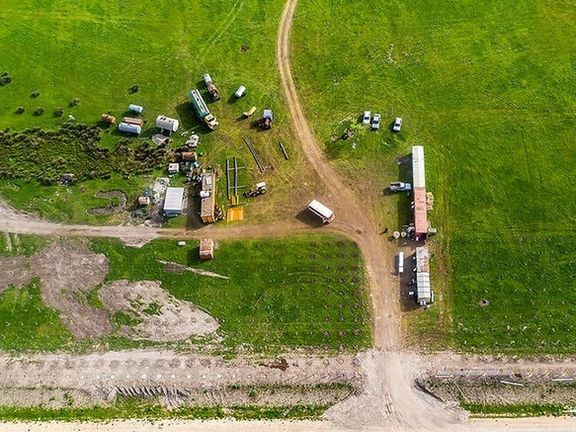
Controversy over an environmentally dangerous petrochemical project continues in Iran as some government officials have defended it despite an earlier ban.
The petrochemical plant in Miankaleh, northern Iran is planned to be built next to a nature reserve, which galvanized opposition by activists and citizens in the past two weeks. President Ebrahim Raisi came out against the project earlier this week and Iran’s Judiciary issued an order to stop construction until further studies.
However, the governor of Mazandaran province and the Friday Prayer Imam of the region strongly defended the project. The governor is appointed by Raisi and the Imam by Supreme Leader Ali Khamenei. Some hardliners went as far as saying opponents of the project are in essence opponents of the Supreme Leader, thus trying to accuse them of a political crime.
The Speaker of parliament Mohammad Bagher Ghalibaf also has backed the project.
In addition, it was alleged in the media that the owner of the petrochemical plant is a super-borrower from government banks, making the whole project politically more controversial. The individual owners of the land and the project remain hidden from public view, as a host of front companies are officially holders of the permit.
Super-borrowers are influential political insiders who borrow huge sums using their influence, often with no intention to pay back.
The government of former president Hassan Rouhani in an apparently hasty move approved the petrochemical project last year and it obtained the oil ministry’s permission in an unusually fast-tracked manner.
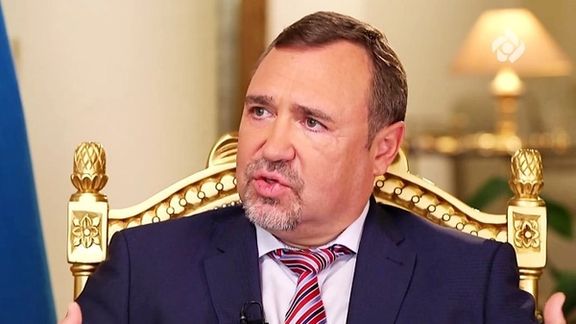
Ukraine’s ambassador to Tehran has attacked the Iranian government over its stance on the Russian invasion and challenged it to send oil to Ukraine.
“My analysis is that Russia has failed, both tactically and operationally, and also strategically,” Serhii Burdyliak told Asia newspaper in an interview published Saturday. The ambassador claimed all European countries were supporting Ukraine because should it fail, no European country would be safe from Russian invasion.
Burdyliak argued that current sanctions by the United States and the European Union counties would be tightened. He claimed Germany had announced it was ready to cut off oil, gas, and coal imports from Russia – whereas in fact Germany, while saying it was ready to consider an oil embargo, is still importing gas.
The ambassador also claimed, “the majority of Iranian people support Ukraine,” while the government was “standing by Russia now.” Burdyliak argued that the prospect of cutting off Russian energy exports to Europe would bring the US and western Europe closer to reviving the 2015 nuclear deal, presumably to gain access to Iranian oil or gas.
Burdyliak warned Iran to think of its longer-term interests. “If for example, we assume that next year there will be problems in relations with Russia, and if the Iranian government continues its position of not supporting Ukraine, and next year Iran wants to get food from Ukraine, Ukraine would ask, ‘Where have you been so far? Where were you a year ago when we needed your humanitarian aid?’”
Oil tankers at Qeshm island
Tehran has defended Ukrainian sovereignty while pointing out that the expansion of Nato to 13 eastern European countries since 1999 was seen as a security threat by Moscow. Along with Armenia, China, India, and Iraq, Iran abstained in the March vote at the United Nations General Assembly condemning Russian military intervention.
Burdyliak suggested Iran should send oil to Ukraine, presumably once the US lifted ‘maximum pressure’ sanctions currently threatening punitive action against anyone taking Iranian crude.
“I was on the [Iranian] island of Qeshm, and there I saw oil tankers waiting for customers,” he said. “I thought, what if you were sending some of these tankers through Poland and Romania to help Ukraine?”…In such a case, you would be proud to have helped a war-torn country”.
There has been a lively discussion in the Iranian media over the war in Ukraine, with most principlist and state media, including state broadcaster IRIB, blaming Nato’s role and accusing the US of abandoning Ukraine after allegedly encouraging them to defy Moscow.
Iran last year imported record amounts of wheat it is vulnerable like some populous Middle Eastern countries to rising commodity prices. Egypt takes over 70 percent of its wheat from Russian and Ukraine.
Middle Eastern countries, including Israel, have also worked to maintain links with Moscow. Oil producers led by Saudi Arabia, which has a good relationship with Russia, have refused US requests to increase crude exports
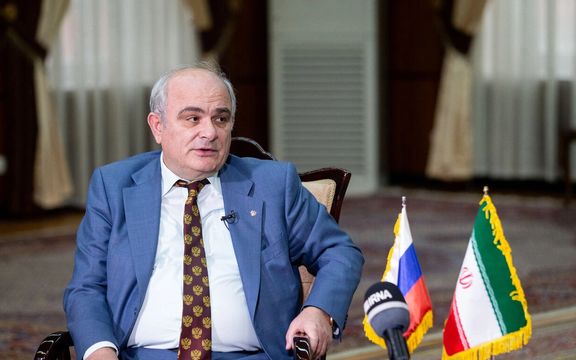
The Russian envoy in Tehran has accused some Iranian media of provoking anti-Russian sentiments among Iranians over Moscow's role in Vienna nuclear talks.
In early March, during talks to restore the 2015 nuclear deal (JCPOA), Russia demanded exemption from the United States regarding Ukraine sanctions in all its dealings with Iran.
In an interview with Khabar Foori news website published Friday, Levan Dzhagaryan(Jagaryan) criticized Iranian media for alleging that Russia’s demand had disrupted the JCPOA talks in Vienna, which supposedly was near a successful conclusion.
Iranian media and the public had indeed expressed outrage at Russia’s demand, seeing it as a hurdle in the way of conclusion of an agreement and blackmail.
After Washington's refusal to budge, and Iranian media's strong criticism, Moscow appeared to back off and seek only guarantees related to the implementation of the 2015 deal rather than all economic relations as initially demanded.
"They are printing one-sided anti-Russian articles every day. It seems that they have turned into the Iran-based branch of the BBC's Persian radio," Dzhagaryan said. He singled out the reformist Etemad newspaper as an media outlet critical of Russia.
"They should ask the members of the Iranian negotiation team. They regularly express their gratitude that Russia and particularly our representative in the Vienna [talks], Mr. [Mikhail] Ulyanov helps a lot … We have always helped, are helping and will help together with our Chinese friends," the Russian envoy said.
In the interview with Khabar Foori, the Russian envoy in Tehran admitted that he was "very worried" about public opinion in Iran turning against Russia. "With the works that we do with your help, and the help of other independent media that aren't under Western influence and don't listen to the BBC, we try to explain [our views to them]," he said.
Dzhagaryan claimed that media in Iran couldn't be prevented from criticizing Russia because of freedom of expression in Iran. "Iran is much more advanced [in freedom of expression] than European countries."
Dzhagaryan also denied that Russia may consider itself Iran's rival in the energy market and therefore not happy with the prospects of US lifting sanctions on Iran which will allow Iranian crude oil to flow into international markets. "[Such allegations] are only a plot of the enemy that opposes [close] relations between Iran and Russia and are looking for excuses to cast a shadow on it."
Many Iranians have a historical bias and distrust towards Russia for historic interferences in Tsarist times in Iran's domestic affairs, wars fought between the two countries, and later, the continuation of the same policies by the Soviets.
Russia's proactive role in the Vienna talks also caused concerns among Iranians. The remarks and photos of the meetings posted by the Russian envoy on Twitter occasionally offered fuel for controversy and many alleged that Ulyanov was running the talks instead of the Iranian negotiators and making announcements on their behalf.
The Russian envoy to Tehran has become quite a controversial figure in Iran in recent months.